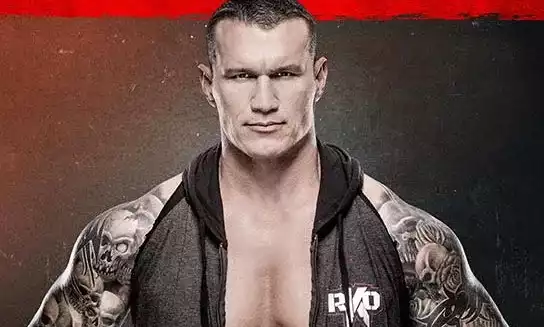Take-Two Interactive is headed to court to determine whether the use of Randy Orton's tattoos in the WWE 2K series constitutes copyright infringement; according to the Hollywood Reporter, the case began in 2009 when Orton's tattoo artist Catherine Alexander, a tattoo artist for Orton, attempted to negotiate a license to use her work on tattoo sleeves that the WWE was preparing to introduce.
According to Alexander, a WWE representative laughed her off and said that she had no grounds for her claim because Orton was under contract to WWE and therefore WWE could do whatever they wanted with his likeness. However, she pursued the issue, and an Illinois judge recently denied Take-Two's motion for summary judgment and instead granted Alexander a partial summary judgment, finding that WWE and Take-Two Interactive did indeed copy her work and that she may have suffered damages as a result.
"Defendants argue that the evidence proves that consumers did not purchase WWE 2K for the tattoos. However, other evidence shows that consumers purchased WWE 2K because of its fidelity to the wrestler's appearance. In particular, Defendants acknowledge that consumer response was a consideration in the development and design choices for WWE 2K." They also acknowledge that consumers expect video games to be authentic and that WWE would have rejected Orton's video game persona if Orton's tattoos were absent or different from Orton's actual tattoos.
"Moreover, Alexander's expert addresses the importance of authenticity in driving sales and profits. Therefore, a question of material fact exists as to whether Alexander suffered actual damages based on the value of the infringing use, and we reverse the summary judgment.
The case is particularly interesting because it was unexpected: as ESPN reported in March, Take-Two won a clear victory in a similar lawsuit over the use of player tattoos in NBA 2K games; the judge in that case, filed in 2016, found that "a reasonable trier of fact cannot find that the tattoos appearing in NBA 2K are substantially similar to the tattoo designs licensed to Solid Oak, which claims the copyrights to the tattoos owned by NBA players LeBron James, Kenyon Martin, and Eric Bledsoe," declaring and granted summary judgment in favor of Take Two.
The judge then stated that "the undisputed factual record clearly supports a reasonable inference that the tattoo artists necessarily granted the players a nonexclusive license to use the tattoos as part of their likenesses and did so prior to the grant of tattoo rights to the plaintiffs." The judge also agreed with Take-Two's argument that the use of the tattoos in the NBA 2K game was subject to fair use: the tattoos in the game were exact copies of the original designs, but "were included in NBA 2K because the figures in the game depicted players . for general recognition as a depiction of the player, which is not the purpose for which they were originally created."
However, the judge in the WWE case ruled differently: Regarding the implied license, the decision held that Take-Two "conflates Orton's right to her own likeness and media appearance with an implied license to use her copyright in an unrestricted and otherwise commercial manner," while . and that other factors precluded summary judgment on the fair use issue."
[13] [14] The court also held that the court's decision was not based on the fair use issue. [13] [14] "Defendants' argument is contrary to Seventh Circuit copyright law, and Alexander need only show that defendants used her property, and the burden is on defendants to prove that the use was authorized. It is undisputed that Alexander holds a valid copyright in the five tattoos at issue and that defendant copied her work." Accordingly, Alexander's motion for partial summary judgment on the copying element is granted. "
Take-Two Interactive declined to comment on the ruling. A trial date regarding damages has not yet been set.
.

Comments